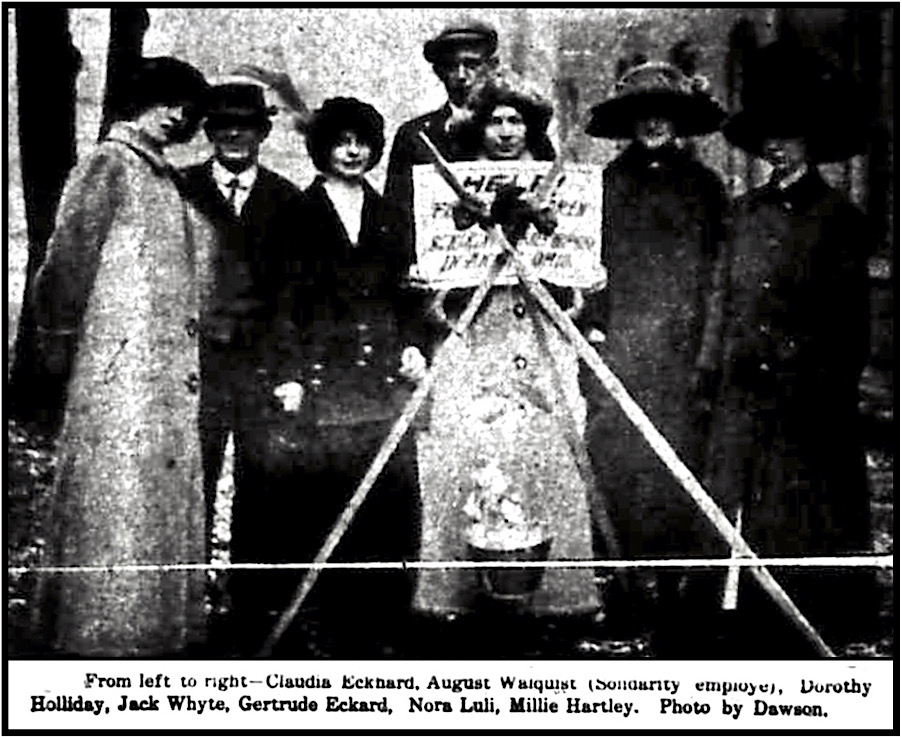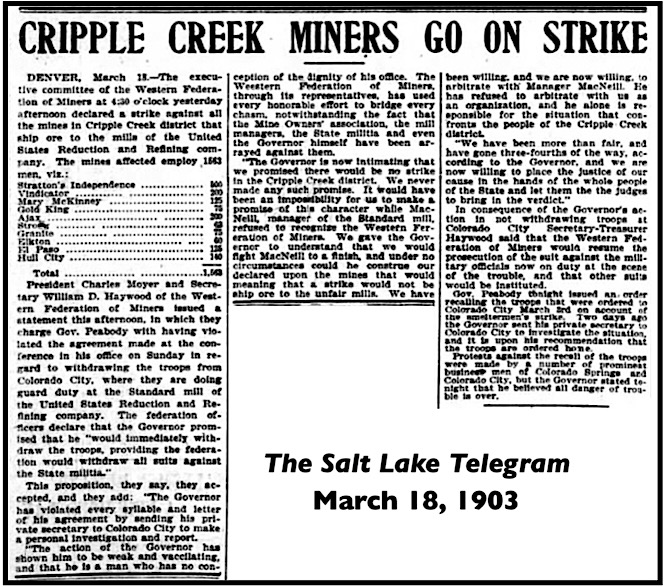 —————
—————
Hellraisers Journal – Saturday April 26, 1913
Clarksburg, West Virginia – Comrade John W. Brown Writes from Jail
From The Wheeling Majority of April 24, 1913:
John Brown Writes From Harrison Jail
———-
John W. Brown, who, with Charles Boswell, editor of the Charleston Labor Argus, and George F. Parsons, United Mine Workers’ organizer, have been imprisoned under the martial law anarchy system in West Virginia since last February, has written a letter to W. A. Peters, of this city, from the present abode of the three men, the Clarksburg jail.
These men, with Mother Jones and many others, were arrested by the militia and have been in jail ever since, having been tried at a farcial trial at which they were not even represented, and tried by men who had previously sworn that they believed them guilty. Their crime is defending the poor mine workers of this state from the greed of the coal barons. For this they will likely be sentenced to the penitentiary, and sent under a violation of the constitution of the state of West Virginia and the United States, for they have been denied a trial in the civil courts, before a jury.
—————————————–
The Letter.
Following is the letter:
Harrison County Jail.
Clarksburg W. Va., April 10, ’13.Dear Comrade Peters:
Your kind favor of March 25 just reached me. Was mighty glad to hear from you. Nothing doing in the Haywood line for this bunch; I know of but two Haywoods in this country, and I am not one of them. As to trials and tribulations…I will tell you all about it some other time. Let it suffice to say: We are here—because we’re here.—Because we can’t get away.
We arrived here April 2 from Pt. Pleasant, where we were flooded out. And, strange as it may seem, we are treated here as human beings. We have been under arrest since Feb. 10, and up to the time we were brought here we were held “incommunicado.” Yet notwithstanding this, did not prevent us from touching an underground wire, and stinging them once in a while. Do you get the “Argus”? Did you see “Old Liberty” from the Bull Pen at Pratt or “Don’t give up the Fight” from Mason county jail?
It is impossible to say at this time what they are going to do with us. But you can take it from me that if they can get Boswell, Parsons and myself, we will sure go. I am looking for about five years. They couldn’t get us for a day in the civil-courts.
As to matters personal, there is nothing the comrades can do for us other than to demand a trial in the civil courts. It’s a great opportunity for the [Socialist] party, but unfortunately, the party is not taking advantage of it.
They made a mistake in bringing us here. Evidently the jailer told them he was running this jail, as we are getting our mail, and outgoing mail is not censored, besides we can see “everybody”, and there is someone here about all the time. The boys hold a meeting every night in front of the court house and every day they bring us in a good dinner.
We have been corraled in box cars, passenger cars, churches, freight depots, old stores and three jails in three different counties. I am afraid the comrades here are going to spoil our “playhouse,” and in that case they may take us to Wheeling.
Give my kindest regards to all the comrades, and…
Sincerely yours,
J. W. BROWN[Photographs and emphasis added.]

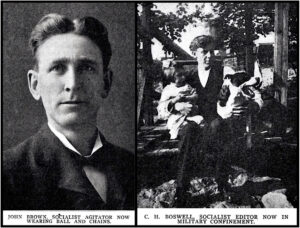
 —————
—————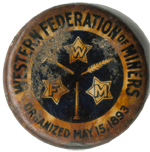
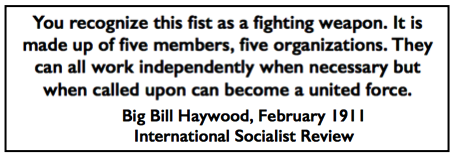 —————
—————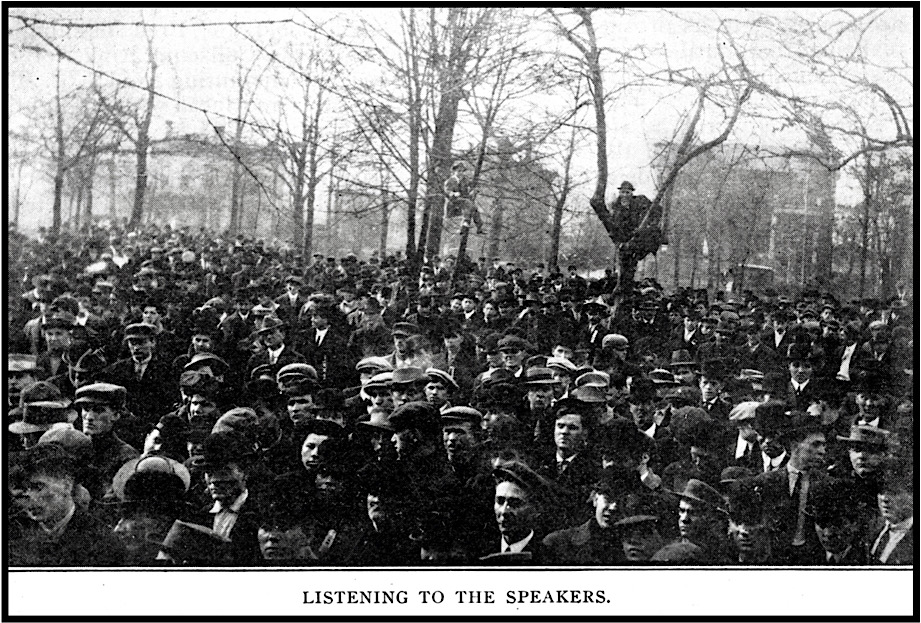
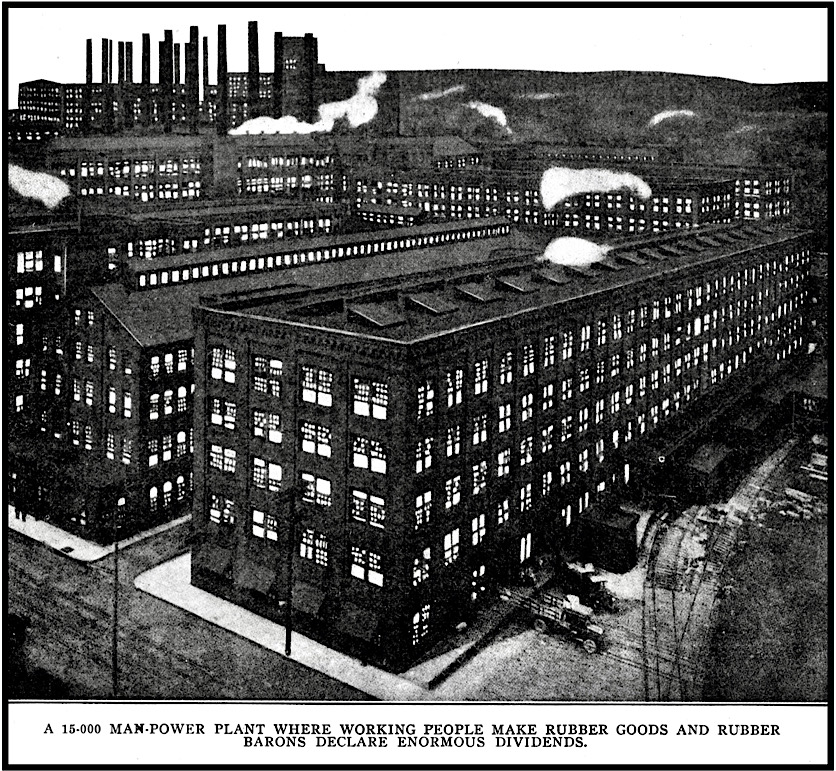
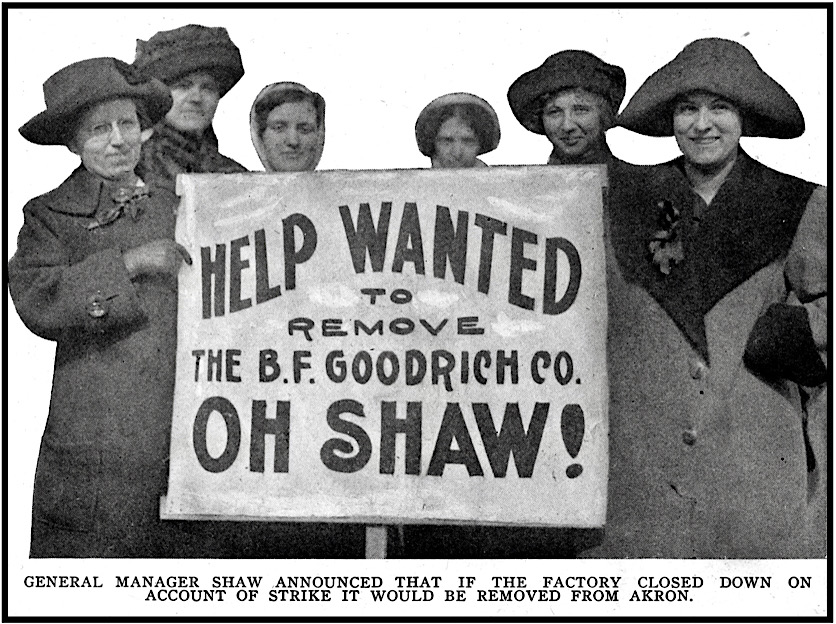
 —————
—————